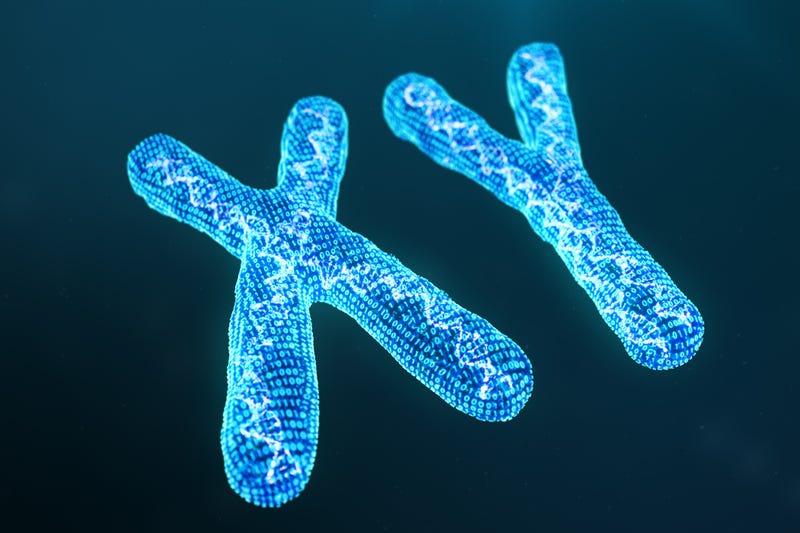
SAN FRANCISCO (KCBS RADIO) – As men get older, their cells begin losing the Y chromosome, a component of DNA that is responsible for turning fetuses into males and male fertility. With this normal loss comes an increased cancer risk, according to a new study.
This week, KCBS Radio spoke to Dr. Dan Theodorescu – director of the Samuel Oschin Comprehensive Cancer Institute at Cedars-Sinai – who lead the research.
For more, stream KCBS Radio now.
“What we found in our paper is that when that Y chromosome was also lost in cancer, that cancer becomes more aggressive,” he explained. “But in the process of being more aggressive, it gains the vulnerability to a major therapeutic approach in cancer, which is that of checkpoint inhibitor therapy.”
According to the National Library of Medicine, the Y chromosome spans more than 59 million building blocks of DNA represents almost 2% of the total DNA in cells. It also contains the blueprints for certain genes, including some that are expressed in bladder lining.
“In men, loss of the Y chromosome has been observed in several cancer types, including 10%-40% of bladder cancers,” said a press release from Cedars-Sinai. “Loss of the Y chromosome also has been associated with heart disease and Alzheimer’s disease.”
With the loss of the Y chromosome, cancer cells can evade the immune system easier.
Authors of the recent study are now working on a way to test for Y chromosome loss in tumors. This testing is intended to help tailor a therapy that their research indicates may actually be more successful in patients with Y chromosome loss. This “standard treatment” is called an immune checkpoint inhibitor.
When patients have Y chromosome loss, they appear to experience T-cell exhaustion. Per the National Cancer Institute, this condition results in T-Cells losing the ability to kill certain cells, such as cancer cells or cells. Immune checkpoint inhibitors reverse T-Cell exhaustion.
“The investigators then reviewed data on two groups of men. One group had muscle invasive bladder cancer and had their bladders removed, but were not treated with an immune checkpoint inhibitor,” said Cedars-Sinai. “The other group participated in a clinical trial and were treated with an immune checkpoint inhibitor. They found that patients with loss of the Y chromosome had poorer prognosis in the first group and much better overall survival rates in the latter.”
Further research that has not yet been published indicates Y chromosome loss could make prostate cancers more aggressive.
“We’re going to look at a number of other cancers and determine if the loss of Y chromosome makes them more aggressive like they did in bladder, [cancer]” Theodorescu told KCBS Radio.
Although the Y chromosome is associated with men, he also said this research could benefit women.
“The Y chromosome contains a set of related genes, called paralogue genes, on the X chromosome, and these might play a role in both women and in men. Additional research is needed to determine what that role might be,” Cedars-Sinai said.
DOWNLOAD the Audacy App
SIGN UP and follow KCBS Radio
Facebook | Twitter | Instagram


